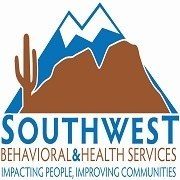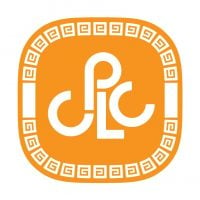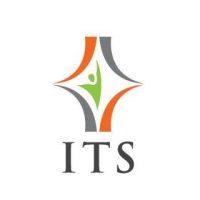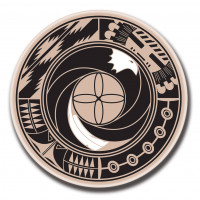
Addiction Resources
Drug Rehab Center in Phoenix, Arizona
- Substance Abuse
- Opioid Addiction
- Drug Addiction
- Alcoholism
Addiction Resources located in Phoenix, AZ offers an integrated and comprehensive drug rehab program with evidence-based treatment for addiction, substance abuse, as well as mental health issues that is accredited by CARF and SAMHSA to ensure quality care.
About Addiction Resources in Arizona
Addiction Resources in Phoenix, Arizona, stands out as a private opioid addiction treatment clinic with over 20 years of dedicated service to the community. Specializing in methadone and suboxone treatment, this facility tailors its approach to cater to adults facing opioid addiction, offering both English and Spanish-speaking services.
- Specialized in Opioid Addiction: Utilizing methadone and suboxone, Addiction Resources directly tackles the challenges of opioid addiction.
- Outpatient and Medication-Assisted Treatment: Provides flexible outpatient programs and medication-assisted treatment for those with mild symptoms, allowing clients to maintain their daily lives while receiving care.
- Supportive Counseling Services: Clients engage in counseling, enhancing the effectiveness of medication treatments and ensuring comprehensive care.
Certified by CARF and licensed by both SAMHSA and the State of Arizona, Addiction Resources ensures that its programs meet high standards of care. Their outpatient treatment and medication-assisted treatment options are meticulously designed to assist individuals in overcoming opioid addiction while ensuring safety and efficacy.
Focusing primarily on opioid addiction, Addiction Resources offers a range of treatment methods, including methadone maintenance, suboxone treatment, and counseling-based outpatient programs. This approach is designed to cater to a variety of needs and promote sustained recovery.
Genders
Ages
Modality
Additional
Accreditations
State License
SAMHSA

CARF
The Commission on Accreditation of Rehabilitation Facilities (CARF) is a non-profit organization that specifically accredits rehab organizations. Founded in 1966, CARF's, mission is to help service providers like rehab facilities maintain high standards of care.
Conditions and Issues Treated
Many people need to recover from substance abuse to live a healthy life. In the end, if you can get through all the steps: detoxifying your body, rehabilitation after some time or when needed (depending on the type), and recovery while also receiving therapy support throughout the process, it can be worth it.
A detoxification center is a common place to start the recovery process from substance abuse. With your body and mind restored, you can continue to heal without the lingering effects of drugs.
Many people who struggle with opioid addiction need to attend specific programs like methadone , Suboxone or Vivitrol clinics.
These types of programs will provide the patient with legal, prescription medications that can help them overcome their cravings for illegal opioids like heroin or fentanyl . If the patient has a chronic condition like Hepatitis C, they must undergo treatment before they can begin taking these medications.
Levels of Care Offered
This center offers a variety of custom treatment tailored to individual recovery. Currently available are Aftercare Support, Detox, Drug Rehab, Outpatient, with additional therapies available as listed below.
Detox refers to the progressive elimination from the body of toxins. The detox period depends on the form of addiction, the length of drug abuse, and the state of health. Under the supervision of medical practitioners, MAT detox based in Phoenix, AZ requires the use of medications.
An outpatient treatment program is set up to help with alcohol or drug addiction, or a co-occurring disorder. The patient must attend the Arizona facility for their therapy and other programs but are able to return home each night. The frequency of mandatory attendance decreases after much of Addiction Resources‘s program is complete.
Aftercare is a term that’s used to refer to any sort of continuing care offered for a drug addict who has voluntarily entered a rehabilitation program. This type of care can be provided in several settings, including outpatient therapy sessions after the addict has completed an inpatient program. There are also 12-step support groups, such as Alcoholics Anonymous, which can provide additional help for addicts trying to stay sober.
Therapies & Programs
Individual Therapy is a critical component of addiction recovery. Therapists work with patients to identify the root of their addiction and figure out how to better handle the issues that led to them using drugs. Individual Therapy is the one-on-one session where people meet with their therapist. Individual therapy provides a safe space for people to open up and discuss personal and sensitive topics which they may not feel comfortable discussing in a group setting.
Couples therapy at Addiction Resources focuses on addiction treatment for the addict and their spouse. The addict’s family, not just the addict, can benefit from this form of therapy. Couples therapy addresses communication problems, trust issues, lack of intimacy, and abuse in intimate relationships. Couples therapy can help rebuild trust between partners, which increases the chances for successful treatment and sustained recovery.
Intimate relationships can be damaged during addiction, and professional help may be necessary to rebuild the often destroyed trust and love. Couples therapy at Addiction Resources helps couples improve communication and rebuild trust. Either or both partners will be helped by this treatment administered by professionals. This treatment can also help one or both partners if addiction is the problem.
Family therapy will also help families realize that the addiction is not their fault. For many years, people blamed themselves for an addict’s behavior and felt that they had done something wrong. This is not the case. Addiction is a disease, and it can strike anyone, even if their life seems fine from the outside. It can bring a lot of shame to a family when they have an addict in their midst, but if everyone is open and honest with each other, then they can help everyone stay in recovery.
Group Therapy is utilized by drug treatment centers like Addiction Resources to provide the recovering drug addict with a platform to talk about their feelings and experiences. It also provides for an opportunity to learn from other addicts who have successfully overcome their addiction.
Group Therapy is employed in lectures, seminars, or discussion groups (the latter two are typically conducted as “therapy groups”). It is recommended that all group members be recovering addicts for this type of therapy to work (though it does not exclude others with lived experience).
Dialectical Behavior Therapy (DBT) is used by drug treatment centers across the United States to help drug addicts become sober. DBT combines traditional behavioral treatments with elements from DBT, including dialectics, distress tolerance, and interlocking issues. It is commonly used to treat Borderline Personality Disorder (BPD) along with substance abuse disorders. The four DBT modules are mindfulness, interpersonal effectiveness, emotion regulation, and distress tolerance.
Cognitive behavioral therapy is also a popular service for individuals living with addiction. This type of supportive treatment uses both one-on-one counseling and group sessions to teach addicts how to identify thoughts, behaviors and emotions that might increase their risk of relapse.
These professionals can help addicts develop coping skills for managing stress, improving self-esteem and overcoming triggers. They might also use behavioral therapy to help addicts learn how to avoid cravings and warning signs that could lead them back into addiction.
Therapy can be used as a step-down from inpatient treatment or as the primary method of overcoming an addiction. No matter which option is best for the addict, they will teach important emotional coping techniques, which can make it easier for addicts to get through the tough days.
Training in improved life skills helps those recovering from addiction feel more capable of self-care. Addiction Resources are daily skills that give the person the tools they need to survive.
The therapy covers practical activities like cooking, job hunting, social interaction, and money management, helping to fill in the knowledge gaps caused by addiction.
These life skills help the person self-manage their recovery and stay on track. It also reduces relapse risk as they gain confidence in their day-to-day abilities.
Payment Options Accepted
For specific insurance or payment methods please contact us.
Additional Details
Specifics, location, and helpful extra information.
Phoenix, Arizona 85031 Phone Number(602) 233-9401 Meta DetailsUpdated April 15, 2024
Staff Verified
Addiction Resources Patient Reviews
There are no reviews yet. Be the first one to write one.
Phoenix, Arizona Addiction Information
Arizona has some of the highest rates of prescription drug abuse in the United States. Methamphetamines, heroin and morphine are among the most commonly abused substances. Prescription pain relievers were prescribed to 348 million people in 2012, enough to medicate every adult in Arizona for 2 full weeks. The number of people with substance use disorders in Arizona has remained relatively constant over the past few years.
In 2012, over 246,000 people were living in Phoenix dependent on or abusing drugs. This amounted to 10.8% of the city's population. In 2016, over 1,000 emergency room visits related to heroin and over 2,500 for cocaine. These numbers are only going up. There are many different rehabilitation facilities in the city and some 12-step meetings and support groups available for help.
Treatment in Nearby Cities
- Benson, AZ (151.1 mi.)
- Prescott, AZ (74.5 mi.)
- Queen Creek, AZ (33.9 mi.)
- Ajo, AZ (87.9 mi.)
- Prescott Valley, AZ (77.7 mi.)
Centers near Addiction Resources



The facility name, logo and brand are the property and registered trademarks of Addiction Resources, and are being used for identification and informational purposes only. Use of these names, logos and brands shall not imply endorsement. RehabNow.org is not affiliated with or sponsored by Addiction Resources.







